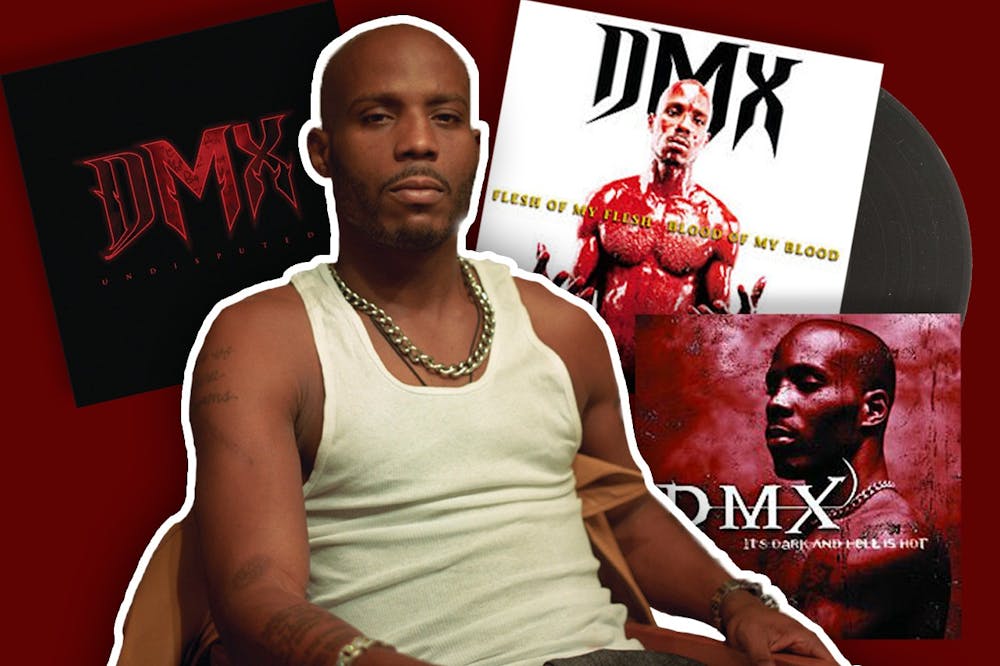On April 9, rapper, songwriter and actor Earl Simmons, known as DMX, died from cardiac arrest following a drug overdose. As a central figure in the ‘90s hip-hop scene, DMX was considered a trailblazer for the genre.
His unexpected death at 50 years old commenced a cultural reflection on his legacy focusing on the work he created as well as the struggles he faced.
“DMX is such a legendary figure — there’s so much you can say about him. DMX was the first for me to speak so openly about his struggles and break it down in such a human way,” said Jodi Watts, an L.A.-based artist from Arizona. “In terms of his music, it truly reflected his life in such an artistic manner. You don’t hear that type of honesty from rappers as much as you do from him.”
With back-to-back hits throughout the ‘90s, DMX earned his place as a rap legend when he became the only rapper to have his first three albums debut at No. 1. Anthems like “X Gon’ Give It To Ya” and “Party Up” commanded attention throughout DMX's career with his rough yet profound sound, and his unwavering attitude inspired many.
“For me, DMX was somebody that was very unapologetic in who he was. It influenced my mindset, and I’m sure others, too. Nothing can faze him,” said Tireek Cody, a Tempe-based artist. “It’s something that I admire and embody in myself. He has this aura that lets him present himself raw and uncut. When you hear his music, his cadence, his deliverance and the energy that he brings to his songs, it gets you excited.”
DMX's sound ranged from amped-up "party" songs to more subtle songs. He was a reverent Christian, and the rapper made points to put his faith into his craft by incorporating prayer and allusions to God.
“DMX had such a deep connection not just toward God and Christianity, but the Bible itself as well. All the ugliness as well as the holiness — Old Testament levels of tragedy,” Watts said. “I think he was tapped into that just as much as he tapped into resurrection and forgiveness inspired by the New Testament.”
DMX wrote in his memoir that he wanted to make his work personal, and by indulging in his religious beliefs for personal expression, he bridged the gap between rap and Christianity for many.
“Unfortunately, hip-hop has a negative connotation in the eyes of many in terms of its content, and that’s where I think DMX became a true trailblazer,” said Zach Lewis, an artist based in the Phoenix area. “He was able to be vulnerable with his life on the streets and his life with God. It opened the door for keeping the balance and bridging the gap between hip-hop artists and skeptics."
From mopping the floors of Waffle House at 4 a.m. to staying loyal to those in the industry who had helped him, many of his fans credit DMX’s faithful character as the reason he was so humble and true to himself.
“He wasn’t the type of person to want to cash in and make hits with no purpose. He always tried to do something greater for the community,” Lewis said. “He wasn’t just trying to get a bag, he was always looking to focus on others. That’s what made his legacy so unique.”
While many focus on DMX’s pioneering ways and humble heart when reflecting on his legacy, critics have brought up his darker past.
“It’s sad to see that people like to focus on the negatives when a person dies," Cody said, pointing to the public's focus on DMX's jail time and relationship with drug abuse. “People like to talk about his drug addiction like they know exactly how it happened — I don’t think it’s my place to cast stones, nor theirs.”
With tragedy comes publicity, and it has given many people the chance to recognize who DMX truly was and the power he wielded.
“I think what a lot of people don’t realize about DMX until his passing is how much of a difference he made in the industry. Everyone knows Jay-Z, Kanye (West) — everyone should know DMX, too,” Cody said. “He was the first artist to have his first three albums go No. 1 consecutively. Nobody else does that. He created his own lane and filled a void within the rap game. DMX should be remembered as one of the best to ever do it.”
Reach the reporter at jecote@asu.edu and follow @jillianecote on Twitter.
Like The State Press on Facebook and follow @statepress on Twitter.
Continue supporting student journalism and donate to The State Press today.




